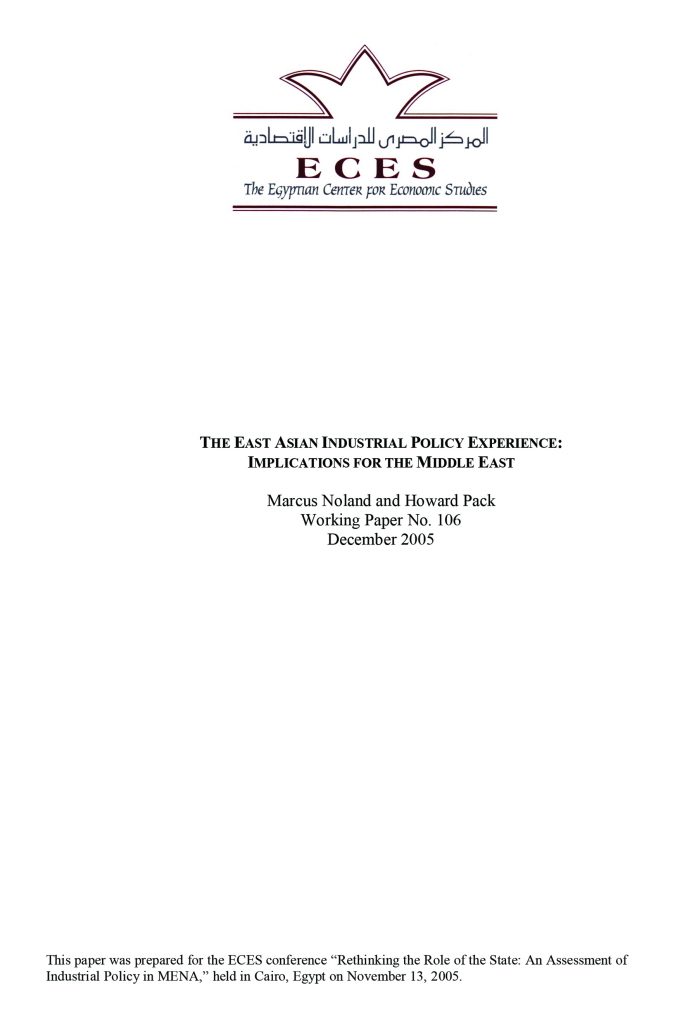Abstract:
Japan, South Korea, and Taiwan are regarded as primary examples of countries that have derived great benefits from increasing integration with the international economy, without surrendering national autonomy in the economic or cultural spheres, by pursuing decidedly non-neutral policies with respect to the promotion of specific sectors and activities. This paper addresses a series of questions in an attempt to assess the relevance of their experiences for the contemporary Middle East: Was industrial policy a major source of growth in these three economies? Can these outcomes be duplicated in the Middle East today, or do special circumstances or changes in the international policy environment prevent replication of the East Asian experience? Given the revealed costs and benefits, is replication advisable? And, if not, are there other, positive, lessons that Middle Eastern countries can derive from the experiences of the East Asians?

